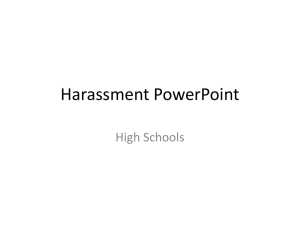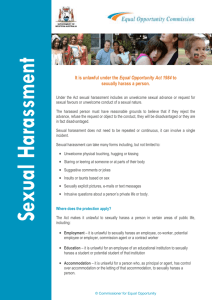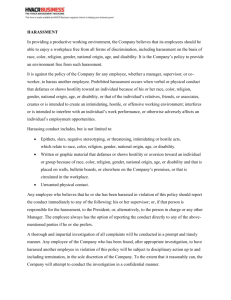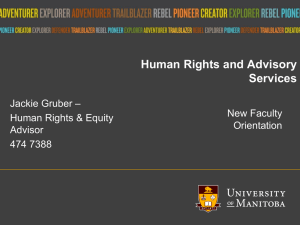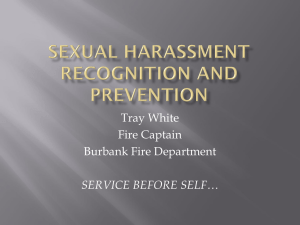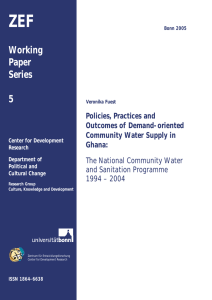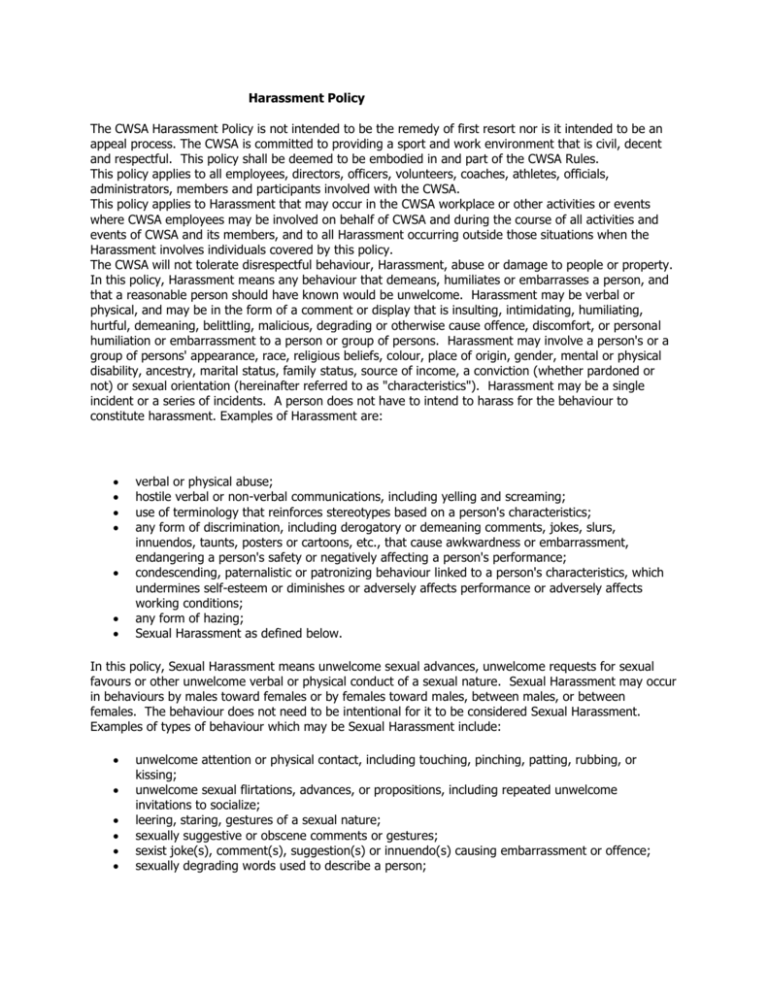
Harassment Policy
The CWSA Harassment Policy is not intended to be the remedy of first resort nor is it intended to be an
appeal process. The CWSA is committed to providing a sport and work environment that is civil, decent
and respectful. This policy shall be deemed to be embodied in and part of the CWSA Rules.
This policy applies to all employees, directors, officers, volunteers, coaches, athletes, officials,
administrators, members and participants involved with the CWSA.
This policy applies to Harassment that may occur in the CWSA workplace or other activities or events
where CWSA employees may be involved on behalf of CWSA and during the course of all activities and
events of CWSA and its members, and to all Harassment occurring outside those situations when the
Harassment involves individuals covered by this policy.
The CWSA will not tolerate disrespectful behaviour, Harassment, abuse or damage to people or property.
In this policy, Harassment means any behaviour that demeans, humiliates or embarrasses a person, and
that a reasonable person should have known would be unwelcome. Harassment may be verbal or
physical, and may be in the form of a comment or display that is insulting, intimidating, humiliating,
hurtful, demeaning, belittling, malicious, degrading or otherwise cause offence, discomfort, or personal
humiliation or embarrassment to a person or group of persons. Harassment may involve a person's or a
group of persons' appearance, race, religious beliefs, colour, place of origin, gender, mental or physical
disability, ancestry, marital status, family status, source of income, a conviction (whether pardoned or
not) or sexual orientation (hereinafter referred to as "characteristics"). Harassment may be a single
incident or a series of incidents. A person does not have to intend to harass for the behaviour to
constitute harassment. Examples of Harassment are:
verbal or physical abuse;
hostile verbal or non-verbal communications, including yelling and screaming;
use of terminology that reinforces stereotypes based on a person's characteristics;
any form of discrimination, including derogatory or demeaning comments, jokes, slurs,
innuendos, taunts, posters or cartoons, etc., that cause awkwardness or embarrassment,
endangering a person's safety or negatively affecting a person's performance;
condescending, paternalistic or patronizing behaviour linked to a person's characteristics, which
undermines self-esteem or diminishes or adversely affects performance or adversely affects
working conditions;
any form of hazing;
Sexual Harassment as defined below.
In this policy, Sexual Harassment means unwelcome sexual advances, unwelcome requests for sexual
favours or other unwelcome verbal or physical conduct of a sexual nature. Sexual Harassment may occur
in behaviours by males toward females or by females toward males, between males, or between
females. The behaviour does not need to be intentional for it to be considered Sexual Harassment.
Examples of types of behaviour which may be Sexual Harassment include:
unwelcome attention or physical contact, including touching, pinching, patting, rubbing, or
kissing;
unwelcome sexual flirtations, advances, or propositions, including repeated unwelcome
invitations to socialize;
leering, staring, gestures of a sexual nature;
sexually suggestive or obscene comments or gestures;
sexist joke(s), comment(s), suggestion(s) or innuendo(s) causing embarrassment or offence;
sexually degrading words used to describe a person;
the display of visual material such as pictures, pornographic materials, cartoons, graffiti or
sayings of a sexual nature which is offensive or which one ought to reasonably know is offensive;
derogatory or degrading remarks about a person's gender or sexual orientation;
unwelcome inquiries or comments about an individual's sex life or sexual preferences;
persistent unwelcome contact or attention after the end of a consensual relationship or
otherwise;
promise or threats contingent on the performance of sexual favours;
decision-making affecting an individual that is contingent on the performance of sexual favours;
conduct that creates an intimidating, hostile or offensive environment;
verbal abuse or threats of a sexual nature;
sexual assault;
stalking.
Complaints:
If you are the subject of Harassment involving persons covered by this policy, you should:
1. Tell the harasser that his or her behaviour is unwelcome and ask him or her to stop.
2. Keep a record of the incidents (dates, times possible witnesses, what happened, your
response). You do not have to keep a record of events in order to file a complaint,
however, a record may help you remember the details over time.
3. You may file a written complaint with the CWSA in care of the Office Manager or the
employee or director of the CWSA delegated responsibility by the CWSA Board to receive
such complaints.
Once the CWSA receives your written complaint, the CWSA Board will appoint a committee of three Board
Members for the purpose of reviewing and attempting to resolve the complaint (the "Committee"). The
Committee may also be a standing committee of the Board. The Committee will open a secure file
containing all of the relevant information in respect of your complaint and undertake an investigation
immediately. If the complaint involves a Board Member or Members or an employee of the CWSA, those
individuals will be precluded from partaking in the Committee and from reviewing the file while the
matter is being investigated. The Committee will interview you and the alleged harasser, along with all of
the individuals who may be able to provide relevant information. If the investigation reveals evidence to
support the complaint of harassment, the harasser will be disciplined appropriately in accordance with
this policy and the CWSA Rules. Subject to the discretion of the Committee, discipline may include a fine
and/or suspension from involvement with the CWSA, or permanent expulsion from any further
involvement with the CWSA. If circumstances warrant, the Committee may refer these matters to the
City of Calgary Police Service, the Alberta Human Rights Commission or such other body or organization
as they deem appropriate. For the purposes of this policy, threats of retaliation and retaliation by one
person against another:
designed to dissuade an individual from reporting discrimination or harassment;
to punish an individual who has rejected sexual advances;
for having invoked this policy (whether on behalf of oneself or another);
for having participated in any investigation under this policy; or
for having been associated with a person who has invoked this policy or participated in these
procedures will be considered a form of Harassment.
Complaints found to be false, frivolous or made in bad faith will not be tolerated and will be subject to
appropriate disciplinary action. In addition to any other findings or sanctions imposed by the Committee,
a finding of Harassment will be considered conduct likely to bring the game into disrepute under the
CWSA Rules. Once the matter has been resolved, the CWSA Board will retain the file in a secure location
along with all of the other books and records of the CWSA. No absolute confidentiality may be made by
the CWSA, particularly in circumstances where the matter warrants police or other regulatory or
administrative body intervention. Notwithstanding this policy, any person who experiences Harassment
continues to have the right to seek assistance from the Alberta Human Rights Commission or to file a
complaint with the City of Calgary Police Service or such other body or organization as they deem
appropriate.
This policy is effective immediately and was adopted at the October 18, 2012 CWSA Board Meeting.




